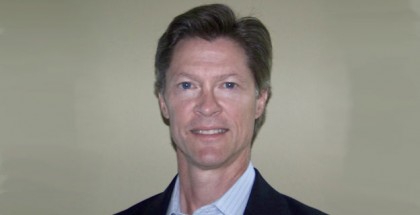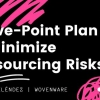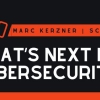As outsourcing has matured as a practice, and as new technologies such as cloud have come to the fore, the nature, composition and scope of deals have evolved dramatically: we live in an age of multisourcing, of hybrid delivery environments and of the ongoing transition to global business services. As a result, the need for organisations to maintain a tight focus on governance has never been greater – and, consequently, the value to sourcing professionals of rigorous and demonstrable training and education in the governance field has never been higher. With this in mind, we got together with Mike Beals, Dean of SIG University's College of Governance, to see how his organisation is providing this value – and to get Mike’s take on why governance is such a vital aspect of outsourcing today; why some organisations may not be paying as much attention to governance as they should; and why professionals working in and around the sourcing space should see learning in this area as a hugely important differentiator…
Outsource: Mike, before we come to talk about governance – and the College of Governance in particular – let’s set the scene: what’s your background and why is this an important topic for you? Mike Beals: I started out consulting with a company in the sourcing business, called Value Sourcing Group - which was ultimately acquired by Meta Group. While there, I worked with a Fortune 100 company to build a centre of expertise for technology procurement and management, and ultimately developed a relationship management methodology to realign their strategic supplier relationships. That methodology was licensed to one of the top-tier outsourcing providers and assisted them with remediating troubled relationships. Then I moved on into governance proper: I was one of the initial members of EquaTerra where I ran the governance practice and helped design and build governance structures for a number of Global 2000 firms. I got to work in a lot of different industries and all across the different business service functions. When EquaTerra was acquired by KPMG, I went out on my own with a focus on developing a training business model. I thought that training was a good opportunity to share many of the best practices that would not otherwise get shared with governance professionals, even though their companies may have hired consultants to do some of this work in the past. O: So, what are your aims for the College of Governance – what are you trying to achieve for the students? MB: I’m interested in training because I think there are a host of people all around the globe, in all different business service areas, that are responsible for managing really complex environments. Instead of hiring consultants, I believe they can become self-sufficient if provided the right knowledge and tools. I share this passion with Dawn [Tiura] at SIG [Sourcing Industry Group], so we’ve partnered to develop a curriculum, delivered in SIG U’s College of Governance. The initial course teaches a top-down organisation design process that I implemented dozens of times during my consulting career, and has been used hundreds of times. The idea being that if students know how to design a new governance group, they will also be able to assess their existing governance capabilities. We talk through understanding the charter of the new environment, thinking through decision rights, developing a measurement model, designing governance processes, understanding what skills and attributes are required, and how enabling tools can help. So in a nutshell, this course provides a jumpstart on either designing a new group or assessing the governance capabilities that they have in place. This enables them to mature that capability over time. O: And who are these students, typically? What kind of level are they at in their careers? MB: There are going to be two levels: the Certified Governance Professional that I just spoke about; and the Certified Governance Expert. The folks that are in the Certified Governance Professional course, are going to have at least five years of experience and an undergraduate degree. We want them to have some level of experience doing governance-type work, or managing suppliers at some level so they can better appreciate and apply the course content. The initial course is focussed on managing a single relationship – so either setting up governance for a single, typically fairly large, outsourcing relationship or shared services environment. Then as we get to the Certified Governance Expert we’re talking about somebody that is more seasoned, who has been in some governance capacity for probably a decade or more, and has responsibility for multiple outsourcing relationships or multiple delivery environments. Their challenge is to drive consistency across their environments and further optimise the capability of those providers that are delivering services in that space. In the Certified Governance Expert course, we shift the focus from just looking externally at service provider relationships, to internal relationships with the business. This is important because as we continue to mature our governance capability we want to move up the value chain and help our business service functions add more value to the business. This capability is critical since in many organisations more than half of the service delivery is done with external providers. Governance resources are the link, or the liaison, between understanding the changing needs of the business and provisioning the capabilities that service providers can bring to bear. In the CGE course, we address topics like the role of governance within GBS environments, value drivers and value propositions, internal stakeholder analysis, joint planning, advanced tool enablement, and setting up an innovation program, to name a few. These topics demonstrate how the governance skillset expands from contract, financial, and performance management to business savvy consultants requiring better relationship management, collaboration, and facilitation skills. O: Do you feel that enough emphasis is being placed on governance right now? When you look at the kind of deals being made, the much greater complexities that people engaging in outsourcing now have to deal with, do you think that governance gets as much attention – and as much budget – as it should? MB: Well I’m a bit biased on the subject, but I generally don’t believe so. I think we’ve come a long way over the last 20 years; Europe frankly has been ahead of the United States in its appreciation for governance, but I think the US has caught up to it. I think there a couple of different dimensions to it. One of them is that we are looking to structure more transformational deals, and so governance is increasingly important - and it needs to be more robust in its capabilities. I think another dynamic is that in the past, governance has just not been budgeted, so whatever budget organisations have had has gone to sourcing consultants or to legal counsel to structure deals. So they’ve already spent their budget before its time to build out the needed governance capability, or enable it with the right tools. I think there is a greater appreciation these days given the intent of the deals, and the complexity of the environments - it’s much more of a hybrid delivery environment with multiple providers both internal and external. This has caused organisations to recognise and invest more in governance than they have in the past. O: It’s interesting that you say you think that the US has been a little bit behind Europe. Normally we would look at the US as being the outsourcing trailblazer, so why do you think that is? MB: Well, it’s just from my personal experience working with corporations that are either based in Europe or are in Europe: there just seems to be a higher level of appreciation for the post-contract management of these deals, than I saw at the time in the US. In the States I think we led the way in terms of outsourcing - doing more outsourcing and structuring more transformational deals - but I think there was always a higher level of appreciation for governance, in the European clients that I worked with and having that capability in place. O: Where do you feel the impetus for greater governance is coming from in a multisourced environment? MB: I don’t see it for the most part as coming from the service providers. I’ve seen a couple of things. One of them is the adoption of hybrid delivery environments and global business services; that is one of the big drivers. I’ve seen the desire for more strategic objectives in more transformational objectives and that’s driving it as well. And the third one I think is that the regulatory environment has gotten much more stringent, particularly in highly regulated industries like financial services where entities like the Federal Reserve Board, the Consumer Financial Protection Bureau, have all gotten much more specific in their guidance; not only about the risks associated with third-party management, but specifically about outsourcing providers. I think these guidelines have permeated into other industries that are not as highly regulated. Also, a number of countries outside of the United States - Canada and a lot of the European Union - are taking their lead from these US federal regulatory agencies in terms of the guidelines that they’re proposing in their jurisdictions as well. O: It seems that the time is absolutely right for the kind of education provided by these courses, that there's a real need in the market - so presumably you're very confident that the industry and the professionals who comprise it will embrace this set of qualifications? MB: Very confident. I think that these trends that I just mentioned are inevitable - we’re going to a more hybrid delivery environment, organisations are adopting global business services as an overall business model, and the amount of regulation is increasing. All of these trends point to the fact that we need to recognise governance as a discipline in which organisations have to develop a core competency. There are hundreds of thousands of people for whom this is a primary or secondary role that need to be educated and there needs to be some standard that these professionals are able to confirm that they have achieved in order to staff these positions. O: How is this a course that can be modified and expanded on - is it something that you’re continually evolving? MB: The intent is to continue to develop and evolve the curriculum over time, to provide additional depth, and tools. That’s one aspect of the maturation of this discipline because I don’t think that anybody can say at this point that “we have arrived”… Secondly, I think there are opportunities to pursue niches in particular industries that are going to have a slightly different lexicon or need to drill into some of the aspects of the curriculum that we cover. So I think there are opportunities to expand the content and the curriculum in both of those directions. O: What would make for success in, say, a year’s time? MB: Well, from my perspective, the ideal scenario is that governance is recognised as a discipline, one within which we need to train and certify, just as we would project management or a number of other disciplines that we have; and that the curriculum that we’ve put together in the College of Governance will be seen as fit to adequately train and certify resources in this given profession.
For more information on the College of Governance and how to become a Certified Governance Professional or a Certified Governance Expert, see www.siguniversity.org/college-of-governance.








